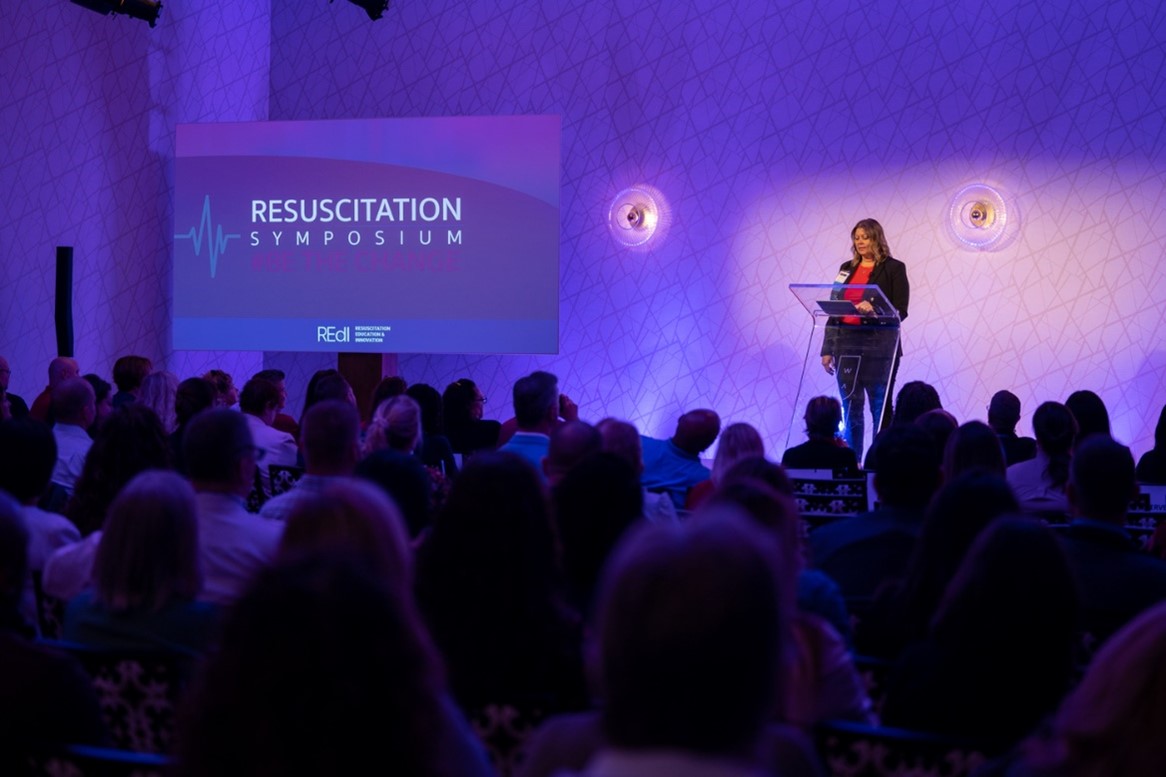For Veterans, health care is an essential part of life after service, and an essential part of that care is access to the best resuscitation care available. That’s why the Simulation Learning, Evaluation, Assessment, and Research Network’s (SimLEARN) Resuscitation Education and Innovation (REdI) program hosted the first-ever VHA Resuscitation Symposium: “Be the Change.”
The three-day conference, held from February 14-16, brought together VA leaders and frontline teams from across the Nation to explore the latest resuscitation education, quality practices and science. From themed escape rooms to operating room simulations and group discussions on translating data in clinical care, the event was a catalyst for advancing Veteran resuscitation outcomes.
Resuscitation Symposium supports life saving care
Resuscitation care is the difference between life and death for individuals experiencing cardiac arrest, drowning or other life-threatening medical emergencies. The goal of resuscitation is to restore blood flow and oxygen to vital organs, such as the brain and heart, which can quickly become damaged when blood and oxygen supply are interrupted. Timely and effective resuscitation care is essential as it improves the chances of survival and reduces the risk of long-term damage or disability. Bearing in mind the determinative nature of this critical care for patient outcomes, SimLEARN continuously advances resuscitation training and education events.
The VHA National SimLEARN Validation, Evaluation, and Testing (SimVET) Center provided attendees with a modern environment to practice realistic resuscitation situations. The simulations, each lasting 30 minutes, were developed through collaboration with nursing and physician subject matter experts. The simulation activities focused on refining team dynamics by immersing staff in the best resuscitation practices.
But the Resuscitation Symposium wasn’t just about simulations. Attendees had the opportunity to attend a variety of sessions on topics such as translating their facility’s data into meaningful clinical change, improving code blue practices and outcomes, and reviewing the key concepts of The Joint Commission Resuscitation Standards for Hospitals. The keynote remarks by SimLEARN Executive Director Eric Bruns and REdI National Program Director Lisa Baker encouraged those in attendance to take their newly developed skills back to their home facilities and “Be the Change” that will lead to the improvement of resuscitation outcomes.
At the Resuscitation Symposium, Dr. Carolyn Clancy, assistant under secretary for Health for Discovery, Education and Affiliate Networks, spoke and shared her gratitude for the REdI program’s staff and those present at the event. Many attendees found it inspiring to see how innovation is improving Veteran care.
If you’re interested in learning more about SimLEARN, you can visit its website.
Topics in this story
Link Disclaimer
This page includes links to other websites outside our control and jurisdiction. VA is not responsible for the privacy practices or the content of non-VA Web sites. We encourage you to review the privacy policy or terms and conditions of those sites to fully understand what information is collected and how it is used.
More Stories
The Medical Foster Home program offers Veterans an alternative to nursing homes.
Watch the Under Secretary for Health and a panel of experts discuss VA Health Connect tele-emergency care.
The 2024 National Veteran Suicide Prevention Annual Report provides the foundation for VA’s suicide prevention programs and initiatives.






